Midnight Oil on career highlights, regrets and why the Voice 2023 poll result was like being ‘king hit’
The Aussie rock stars have opened up about their shared heartbreak and whether they will return to the stage ahead of the release of their new documentary.
Music
Don't miss out on the headlines from Music. Followed categories will be added to My News.
Despite having called time on a long and celebrated career nearly two years ago, the resounding No vote in last year’s Voice to Parliament referendum still hit Midnight Oil hard.
It’s hardly surprising though, given that the veteran Aussie rockers have been passionate about Indigenous issues since their trailblazing 1986 Black Fella/White Fella tour of Outback Australia with the Warumpi Band.
In their new career-retrospective documentary, The Hardest Line, they say the experience “radicalised” the band and led directly to Diesel and Dust, the album released the following year that sold more than six million copies around the world and brought them their biggest international success, driven by the land rights anthem Beds Are Burning.
Indeed, the band knocked back a coveted opportunity to perform at the Grammy Awards the following year so frontman Peter Garret could honour a commitment for an Indigenous Australians cause in Australia, much to the consternation of their US record label. And the band’s first studio project after its surprise reunion in 2017 was the Makarrata Project, inspired by the Uluru Statement From the Heart and recorded with Indigenous and First Nations artists, which gave them their first Australian No.1 album in 30 years.
“We all went very quiet for about two weeks as if we’d been king hit – it was so disappointing,” says Oils drummer Rob Hirst, still angry at what he describes as the sinister politicisation of a “generous offer made by First Nations people to this country”.
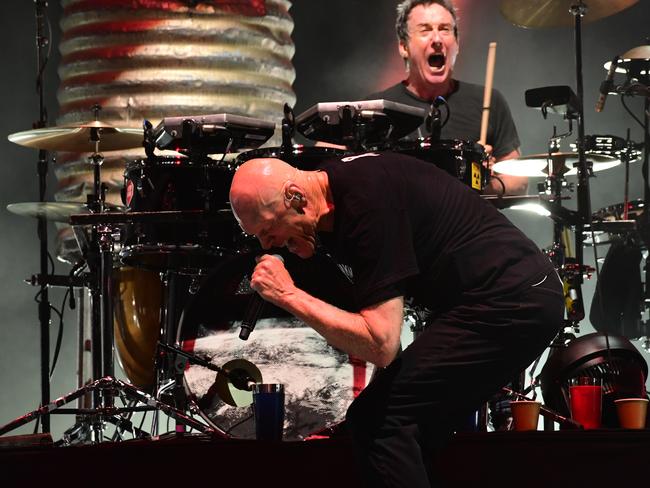
His bandmate, frontman Peter Garrett, who spent nearly a decade in federal politics after the Oils first split in 2002, is a little more pragmatic, saying he was disappointed at the result but also heartened by the 6 million Australians who voted Yes.
“I think the fact that we didn’t have anything approaching bipartisan support always meant that getting the referendum up was really a long shot and not necessarily a reflection of what I think are increasing levels of understanding and generous disposition towards First Nations peoples,” he says. “And it’s not over – we will be there whenever the call goes out.”
Both Garrett and Hirst are in a reflective mood ahead of the national release of The Hardest Line, a rarity for a band that for nearly 50 years drove relentlessly forward with musical curiosity and for whom nostalgia was an anathema.
The documentary, which has been about seven years in the making, goes right back to the beginnings of Midnight Oil, when Hirst and his high school friends, multi-instrumentalist Jim Moginie and original bass player Andrew James, started making music together under the underwhelming moniker Schwampy Moose. Garrett joined after answering an ad in a Sydney newspaper, and guitarist Martin Rotsey completed the original – and renamed – line-up a few years later.
At the time Hirst says his only ambition was to get a song played on their radio and to record an album, both of which the band managed in 1978 with a self-titled debut after building a reputation as a furious live act and a dedicated following thanks to tireless touring up and down the east coast of the country.
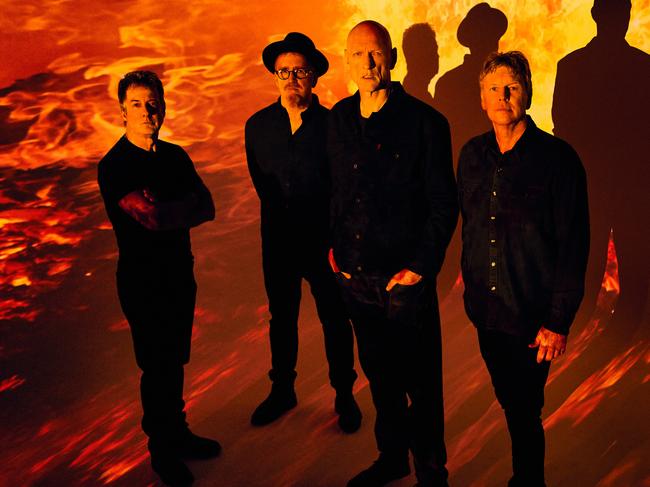
But, says Hirst, the band’s ambition grew with their abilities and success, fuelled by a blend of politics, social commentary, increasing sonic experimentation and a sometimes bloody-minded determination to forge their own path, going around music industry norms such as Countdown and commercial radio if need be.
“It’s like most musicians, artists, playwrights, authors – once you have done something you go ‘OK, I can do much better than that, or I can do something different, or it can sound better or the songwriting could be better or the production could be better’,” says Hirst. “It’s like a 45-year Lego-block-making exercise where you’re always wanting to best what you’ve done.”
Their fourth album, 1982’s 10,9,8,7,6,5,4,3,2,1, featuring enduring classics such as The Power and the Passion and US Forces, stayed in the local charts for 171 weeks and the band members started to look overseas. After the success of Diesel and Dust, the Oils seemed poised for a level of global dominations that contemporaries such as U2 and REM went on to achieve, but they never quite managed the leap.
Garrett is still convinced that the band could have gotten there – but the sacrifices and dislocation required to do it probably would have also destroyed it.
“The truth of it is that Midnight Oil would have been an even bigger band had we relocated to the northern hemisphere and spent another two to five years in that mid to late ‘80s period concentrating on our career,” he says.
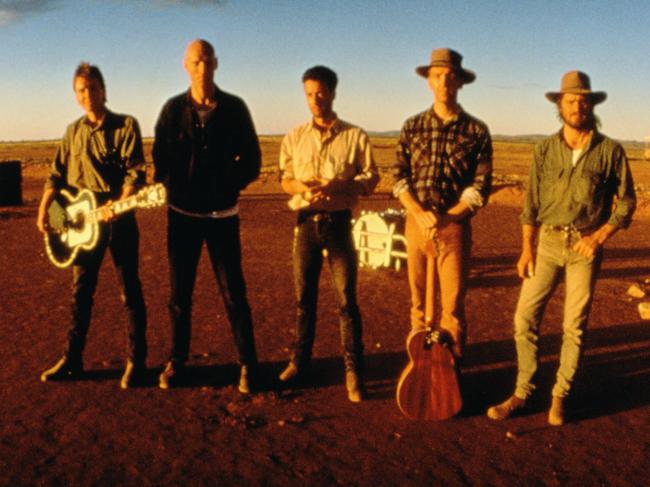
“But I am not sure that the band would have survived that as personalities because I think that, one, we were bound very strongly to red ochre, New South Wales coastline, kith and kin that we had grown up with and streets that we knew well. And secondly, we always wanted to be a part of the emerging culture of the country.
“We didn’t really fully figure out what that meant but eventually rock and roll and rock and roll success – however you want to measure it – looked pretty hollow and a little bit clownish unless you are doing something a bit more fair dinkum with your work and with your career and the right place for us to do that was Australia.”
Hirst says he’s grateful for “an incredible dream” run of making original, uncompromising music but concedes “there was some decisions made that with hindsight might have been slightly counter-productive, maybe churlish”, listing knocking back the Grammys performance and a headline slot on the massive Lollapalooza tour among them.
“The record company basically lost heart and interest in us at that point,” Hirst says of the Grammys snub. “They thought ‘f---, if they are not going to turn up to the Grammys, when are they going to turn up?.’. But all in all it’s hard to know whether that would have made any difference.”
While Garrett says that his regrets are “too few to mention”, his proudest Midnight Oil moment was the band’s secrecy-shrouded performance at the Closing Ceremony of the Sydney Olympics. After years of surprise protest performances, from the polluted streets of Sao Paulo to the offices of oil giant Exxon on New York’s 5th Ave, the band pulled off its most epic piece of guerrilla activism by performing to a TV audience in the billions clad in black suits emblazoned with the word “Sorry”, an up-yours to the Howard Government’s refusal to apologise to the Stolen Generations.
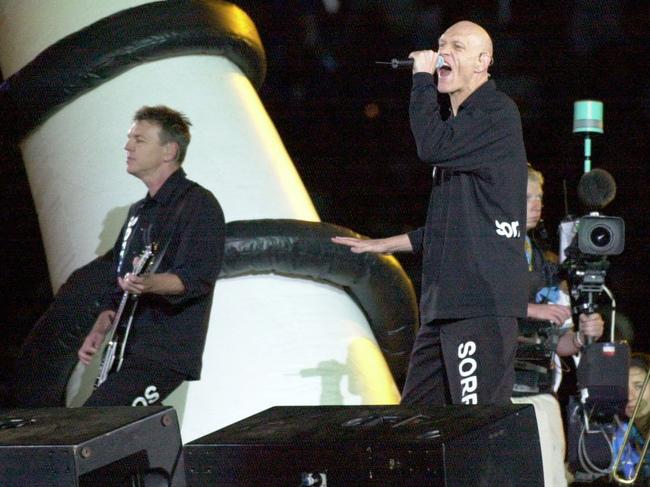
“I just felt that this was a moment that Midnight Oil had to grab a hold of and let people know what it felt about something which was so central to the Australian spirit,” he says. “The fact that we were able to pull it off and get away with it was nothing short of a miracle.”
Garrett also says he’s grateful for the second life of the band that began with the 2017 reunion tour. Midnight Oil had ended in 2002 with a whimper rather than a bang, with declining album sales and indifferent radio support, but the two sellout tours and two further studio albums allowed the veterans to bow out on their own terms.
“Having a chance to come back and regather and find that the alchemy was still liberally flowing through the rehearsal room and songs were popping out and getting ourselves back out to an audience that hadn’t gone away – if anything it had grown – was very, very special,” he says.
As to the future of the Oils, having already completed one successful comeback, Hirst is adamant: “The state of Midnight Oil is that the band finished on the 3rd of October, 2022. Full stop.”
Garrett is slightly more circumspect, leaving the door ajar, even if only ever so slightly.
“I think that if everybody is well enough and in the same place at the same time and the stars align, you’d never rule out doing a show for something that was important to you,” he says.
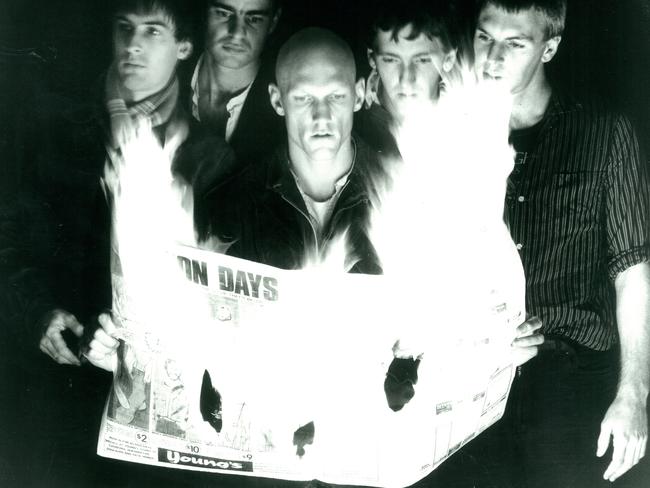
“But certainly there won’t be Midnight Oil tours or anything of that kind – we have drawn a line under that part of our career. But could we get together and write some songs and do it for something we all believe in? It’s possible. I don’t think it’s going to happen in a hurry and it may never happen.”
And as for the complex, sometimes-fractious musical alchemy between the band members, Garrett says it’s like no other he’s experienced – and likely never will again. Even if they are not in each other’s lives all that much away from Midnight Oil, Hirst, Moginie and Rotsey formed surf band The Break when Garrett was walking the halls of Parliament House and Rotsey also appeared on Garrett’s solo album True North, released this year.
“We are in touch with one another because of course the band has a life after performances with people wanting to use songs in films or whatever it might be,” says Garrett. “So we would see one another and know how one another is going but we wouldn’t be hanging out down the pub necessarily. But if there were instruments around and there was a stage and we were all in the same room – then everybody else had better get out of the way.”
The Hardest Line is in cinemas on Thursday.
More Coverage
Originally published as Midnight Oil on career highlights, regrets and why the Voice 2023 poll result was like being ‘king hit’




